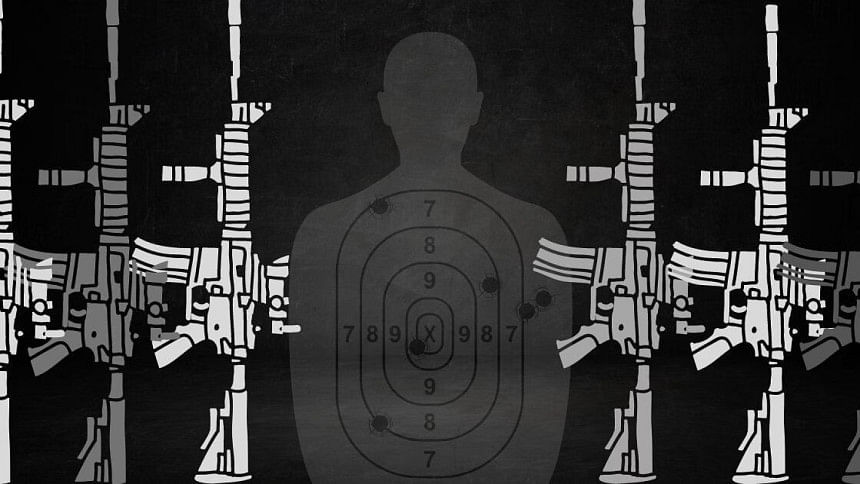Mohammadpur 'gunfight' follows a disturbingly similar script

Bangladesh has entered a new era—at least, that was the promise.
After years of repression, election fraud, and unchecked state violence under autocrat Sheikh Hasina's government, the student-led uprising brought the interim government to power with a perceptibly sweeping mandate for change.
They wanted justice. They wanted an end to extrajudicial killings, enforced disappearances, police brutality, and an inclusive Bangladesh.
Yet, within six months into the new administration, we are having to grapple with grave misgivings especially since the script is strikingly similar.
The Mohammadpur gunfight early on February 20 reminds us that the state machinery has yet to be reformed. Two young men—Miraz Hossain and Md Jummon—were killed in an 'exchange of gunfire' with joint forces.
The official narrative claims that security forces raided the area based on intelligence that a group of criminals was planning a robbery. According to the Inter-Services Public Relations (ISPR), the suspects opened fire from the roof of a one-storey building, forcing the joint forces to retaliate. When the gunfire stopped, two bodies were found on the roof. Weapons were allegedly recovered from the scene. A photo of a bloody pistol was circulated. The joint forces arrested five other youths.
According to The Daily Star, family members admit that both men had criminal records, but their deaths raise disturbing questions. Jummon's sister recalled that he had received phone calls before stepping out that night—only to end up dead an hour later. Locals reported unusual activities in the area before the raid, including an army patrol and announcement over megaphones instructing people to stay indoors. A section of the tin roof where the bodies were found appeared to have been cut—something that did not exist before. The forensic report confirmed that both men died of bullet wounds.
This is not an isolated incident. Almost identical scripts were played out hundreds of times. And they were passed off as 'gunfights' or 'crossfire', both euphemisms for extra-judicial killings. The justification was always the same—crime control, national security or self-defence. But in reality, they were state-sanctioned executions.
The world took notice when the United States imposed human rights sanctions on the Rapid Action Battalion (Rab) in December 2021, forcing a decline in such incidents.
The Mohammadpur gunfight, as law enforcers insist it was, gives rise to apprehensions that Bangladesh's law enforcement agencies still remain unreformed.
What makes this case alarming is the government's silence. This administration came to power on the promise of justice and accountability. It was supposed to be different. Yet, it appears to be following its predecessor's playbook to curb crime.
The rise in crime, particularly in Dhaka, is undeniable. Robberies, muggings, and violent attacks are surging, and law enforcement must act. Yet the government's "Devil Hunt" operation has largely targeted opposition members, while actual criminals roam free.
Instead of dismantling organised crime, the interim government appears to be using law enforcement as another tool for political persecution.
The people did not topple one dictatorship only to end up with a tamer version.

 For all latest news, follow The Daily Star's Google News channel.
For all latest news, follow The Daily Star's Google News channel. 



Comments